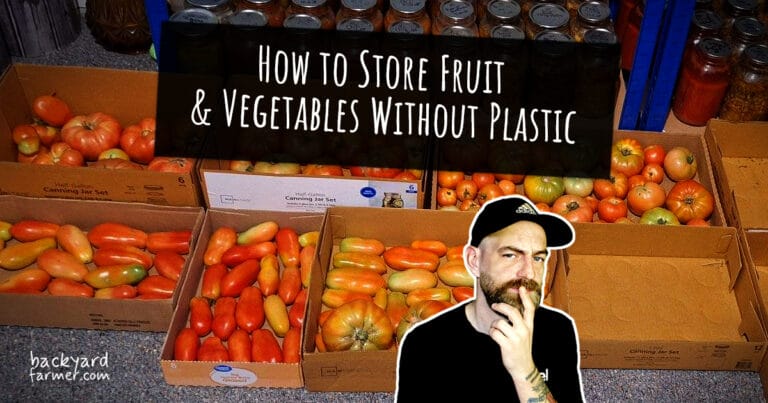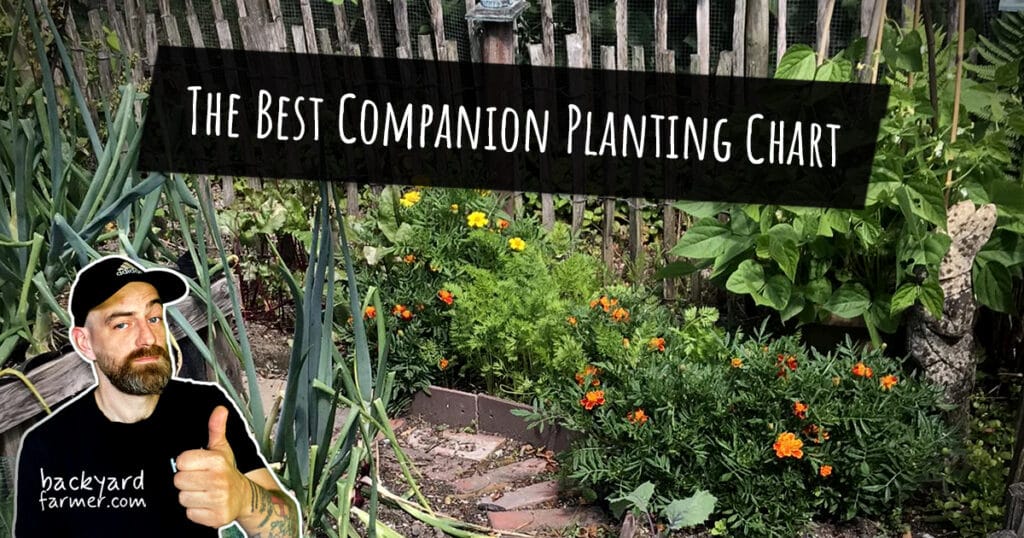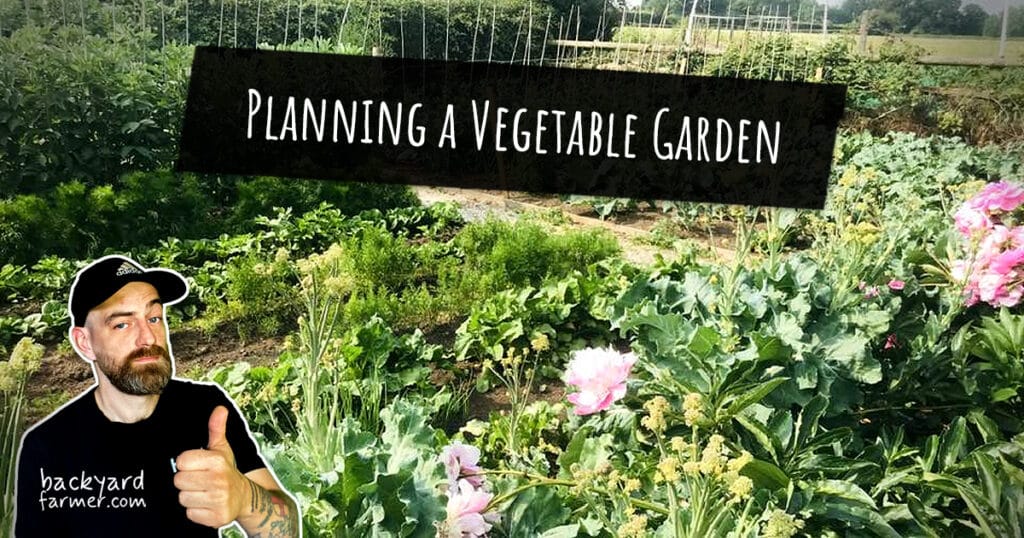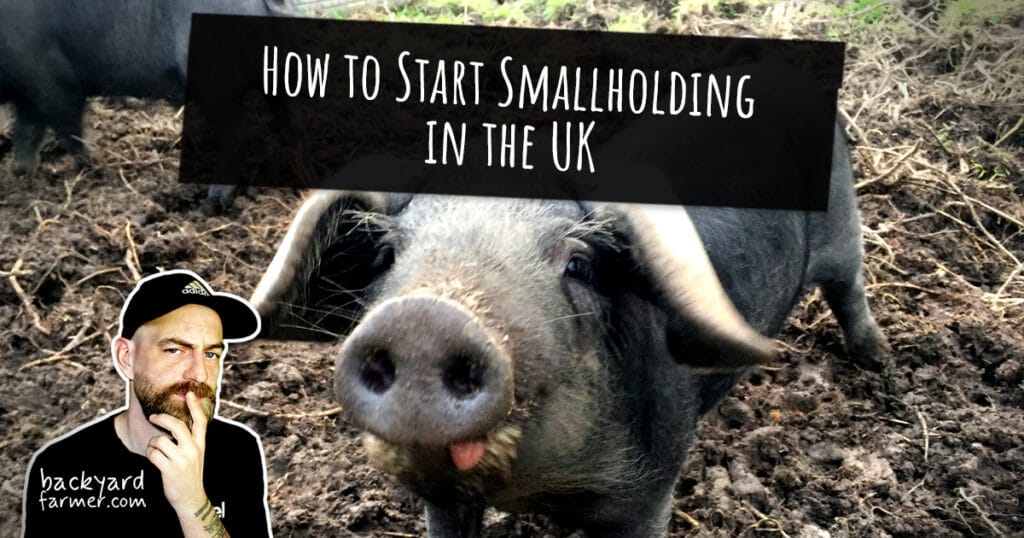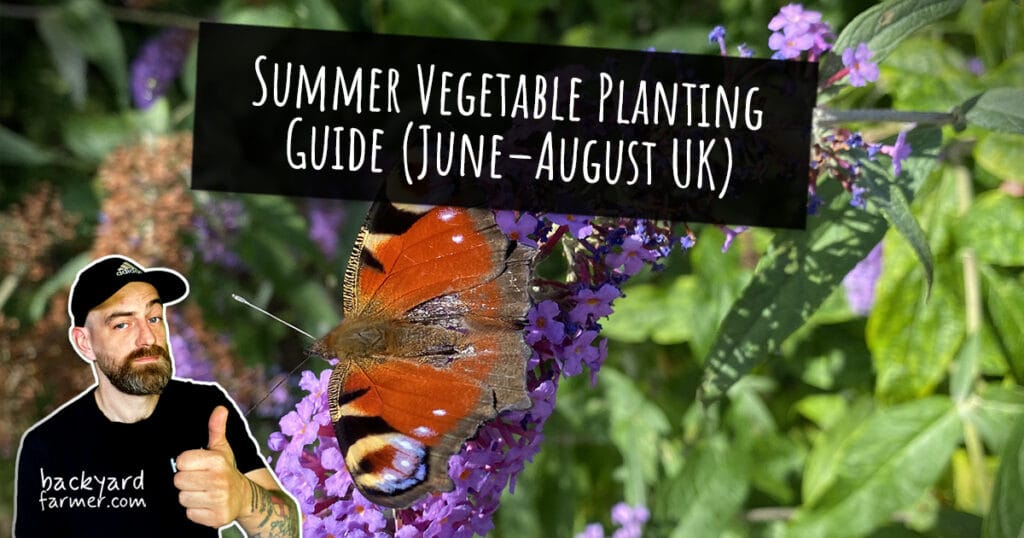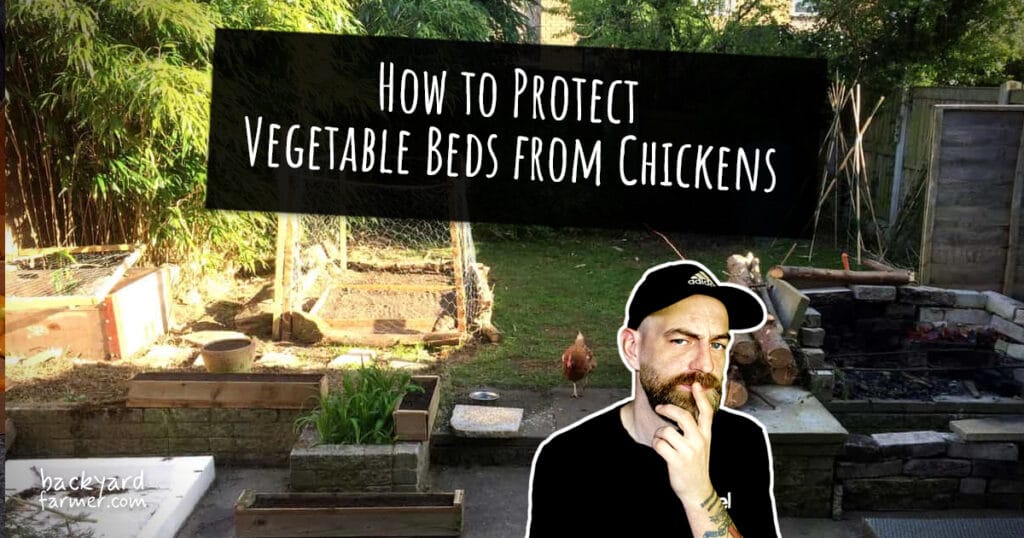Introduction
Food is expensive — and it’s only getting worse. At the same time, plastic packaging wraps almost everything we bring home.
Somewhere along the way, in most modern UK kitchens, we lost the simple, practical knowledge of how to store vegetables UK households actually buy.
If you’ve ever stood in front of your fridge wondering whether everything should just go in there, you’re not alone. When it comes to how to store vegetables UK homes rely on, the advice is often confusing — and sometimes just plain wrong.
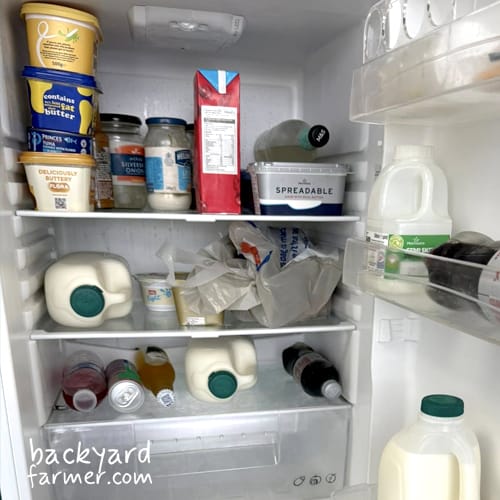
As a result:
- Potatoes turn sweet in the fridge
- Mushrooms go slimy in plastic
- Strawberries mould overnight
Meanwhile, supermarket packaging looks convenient. However, it traps moisture and frequently shortens shelf life instead of extending it.
The good news is this: once you understand the basics, storing produce becomes far simpler.
Learning how to store fruit and vegetables in the UK correctly — and more importantly, how to store vegetables without plastic — can:
- Save money
- Reduce food waste
- Improve flavour
- Support plastic free food storage UK households are increasingly aiming for
In other words, you get fresher food and a lighter bin.
Most produce already comes with its own natural protection. It simply needs the right temperature, proper airflow, and balanced humidity.
So in this guide, I’ll show you:
- The best way to store vegetables in real British homes
- How to store vegetables naturally UK kitchens can actually manage
- Which foods should never be refrigerated
- Practical methods for plastic free food storage in the UK
This isn’t a generic storage chart copied from overseas. Instead, it’s grounded, practical advice tailored to UK kitchens — small cupboards, limited pantry space, and all.
So let’s get it right, waste less, and keep our food fresher for longer.
Continue your sustainable food storage & zero-waste kitchen journey
Low energy food preservation & zero waste pantry – Builds on the theme of reducing waste by showing *methods to preserve foods long-term without relying on plastics or electricity-heavy storage.
How to make one jar of jam in 30 minutes – A practical way to capture and save the flavours of fresh seasonal produce for later use without using plastic packaging.
The best way to freeze fresh tomatoes in 2024 – A complete guide – A targeted guide on freezing a popular crop; complements your storage piece with step-by-step freezing tips for home cooks.
Quick Reference: Where to Store Fruit and Vegetables (UK Guide)
If you’re short on time, use this table as your quick-start guide.
It outlines the best way to store vegetables UK households commonly buy, while also supporting plastic free food storage UK kitchens are moving towards. So before you unload your shopping into random cupboards and fridge drawers, take a moment to check where each item actually belongs.
In short, this overview answers the most common question: where should I store vegetables in the UK — fridge or cupboard?
| Food Item | Fridge? | Best Storage Method | Why? |
|---|---|---|---|
| Potatoes | ❌ No | Cool, dark cupboard in paper bag or box | Prevents sugar conversion & sprouting |
| Onions | ❌ No | Dry, ventilated basket or net bag | Stops moisture build‑up & rot |
| Garlic | ❌ No | Hanging or breathable container | Needs airflow to stay firm |
| Carrots | ✅ Yes | Crisper drawer, unwashed, paper lining | Controls moisture & extends shelf life |
| Beetroot | ✅ Yes | Unwashed in fridge drawer | Keeps firm & prevents shrivelling |
| Mushrooms | ✅ Yes | Paper bag in fridge | Absorbs moisture & prevents sweating |
| Strawberries | ✅ Yes | Dry container, unwashed | Slows mould growth |
| Leafy Greens | ✅ Yes | Breathable produce bag or open bowl with paper towel | Reduces wilting |
| Apples | ✅ Yes | Fridge drawer, separate from vegetables | Produces ethylene gas |
| Avocados (ripe) | ✅ Yes | Fridge once soft | Slows over‑ripening |
| Avocados (unripe) | ❌ No | Room temperature | Allows natural ripening |
| Bananas | ❌ No | Countertop, away from other fruit | Cold damages texture |
A Simple Rule to Remember
As a general guide, if it grows underground (like potatoes and onions), it usually prefers a cool, dark, dry place rather than the fridge. In other words, store root vegetables naturally in a cupboard with airflow instead of sealed plastic.
On the other hand, if it’s soft, leafy, or high in moisture, it benefits from cooler temperatures in the fridge — provided you use breathable storage instead of airtight plastic bags.
Of course, there are exceptions. However, this framework answers most everyday questions about how to store fruit and vegetables in the UK.
In the sections below, we’ll go deeper into how to store vegetables without plastic, the best way to store vegetables naturally UK kitchens can manage, and practical storage methods that reduce waste long term.
Why Plastic Isn’t Ideal for Storing Fruit and Vegetables
Plastic packaging is convenient. It’s cheap, lightweight, and everywhere in UK supermarkets. However, when it comes to how to store vegetables in the UK properly, plastic often works against you — especially if your goal is to keep produce fresher for longer.
At first glance, sealing everything up feels tidy and safe. In reality, though, plastic frequently shortens shelf life instead of extending it. So, if you’re exploring plastic free food storage UK options, it helps to understand exactly why.
1. Plastic Traps Moisture
Most fresh fruit and vegetables are still “alive” after harvest. As they sit in your kitchen, they continue to release moisture and natural gases.
When you seal vegetables in plastic, that moisture has nowhere to escape. As a result:
- Condensation builds up
- Surfaces stay damp
- Mould and bacteria develop more easily
That’s exactly why mushrooms turn slimy in plastic and leafy greens collapse into a soggy layer at the bottom of the bag.
By contrast, breathable storage — such as paper bags, cotton produce bags, or open containers — allows excess moisture to escape. Therefore, it supports the best way to store vegetables naturally UK kitchens can manage without complicated systems.
2. Airflow Matters More Than We Think
Good storage isn’t just about temperature. In fact, air circulation plays an equally important role.
Root vegetables like potatoes, onions, and garlic need airflow to prevent rot and sprouting. When you seal them in plastic, you reduce ventilation and increase humidity. Consequently, you shorten their usable life.
Traditional storage methods worked for a reason. Wooden crates, net bags, and hanging garlic braids allowed produce to breathe. As a result, food lasted longer — even before modern refrigeration.
So, if you’re learning how to store vegetables without plastic, airflow is one of the first principles to get right.
3. Ethylene Gas and Ripening
Some fruit, including apples and bananas, releases a natural ripening gas called ethylene.
In a sealed plastic environment, ethylene builds up more quickly. As a result, ripening speeds up — and nearby vegetables spoil faster.
Therefore, separating ethylene‑producing fruit and using breathable materials supports the best way to store fruit and vegetables in the UK without unnecessary waste.
4. The Environmental Factor
Beyond fridge performance, plastic also carries a wider environmental cost.
Single‑use food packaging contributes to landfill waste and microplastic pollution. However, switching to plastic free food storage UK households can realistically adopt doesn’t require extreme measures.
Instead, small and consistent swaps — cotton produce bags, glass containers, paper storage, and simple cupboard methods — add up over time. Gradually, you reduce waste while improving storage at the same time.
When Plastic Can Be Useful
To stay practical, plastic isn’t always the enemy.
For example, in very dry fridges, some vegetables may need partial coverage to prevent dehydration. So, the aim isn’t zero plastic at any cost. Rather, it’s understanding when breathable storage works better and when limited coverage makes sense.
In most cases, if you’re working out how to store vegetables without plastic in the UK, the principle remains simple:
Control moisture. Allow airflow. Store at the right temperature.
Get those three right and, more often than not, your fruit and vegetables will last longer — naturally and with far less waste.
Fridge vs Cupboard: Where to Store Vegetables in the UK
One of the biggest mistakes people make when working out how to store vegetables in the UK is assuming the fridge is always the safest place.
It feels logical — colder must be better, right? However, that’s not always true. In fact, choosing the wrong environment is one of the main reasons food spoils faster than it should.
So, if you’re asking where should I store vegetables in the UK — fridge or cupboard? the answer comes down to three key factors:
- Temperature
- Humidity
- Light exposure
Once you understand these, deciding the best way to store vegetables in the UK becomes far more straightforward.
Temperature: Cooler Isn’t Always Better
Most UK fridges run between 3–5°C. That temperature works brilliantly for soft fruit, leafy greens, and high‑moisture vegetables.
However, some produce reacts badly to cold conditions.
For example:
- Potatoes convert starch into sugar
- Onions soften and go mouldy
- Garlic loses firmness
- Bananas turn black and mushy
Instead, these foods prefer a cool — but not cold — space, ideally around 7–12°C. In other words, think pantry, larder, or shaded cupboard rather than a fridge drawer.
Therefore, if you want to store vegetables naturally in the UK, don’t assume refrigeration is always the answer.
Humidity: Why It Matters for Storing Vegetables
Temperature gets most of the attention. However, humidity plays just as important a role in fruit and vegetable storage.
Modern fridges are fairly dry. While that slows bacterial growth, it can also dehydrate certain crops.
High‑moisture vegetables — such as carrots, salad leaves, and herbs — usually benefit from refrigeration, particularly in the crisper drawer where humidity is slightly higher.
By contrast, dry crops like onions, garlic, and potatoes need low humidity and good ventilation. Otherwise, they soften and deteriorate more quickly.
So, when deciding where to store vegetables naturally UK kitchens allow, consider both moisture levels and airflow.
Light Exposure: Why Cupboards Still Matter
Light might not seem like a major issue. Yet it triggers sprouting in root vegetables surprisingly quickly.
For example, potatoes left on open shelves develop green patches and shoots within days.
A dark cupboard, cardboard box, or hessian sack blocks light while still allowing airflow. As a result, produce lasts longer without specialist storage systems.
A Simple Framework for Fruit and Vegetable Storage in the UK
To keep things practical, use this simple rule when deciding how to store fruit and vegetables in the UK:
- Leafy, soft, or high‑moisture crops = fridge (stored in breathable containers)
- Dry, underground, or bulb crops = cool, dark cupboard with airflow
- Ripening fruit = room temperature first, then fridge once ripe
Most British homes no longer have traditional pantries. Even so, a shaded cupboard away from heat sources usually works perfectly well.
Ultimately, learning the best way to store vegetables UK households commonly buy doesn’t require specialist equipment. Instead, it simply means matching each crop to the environment it naturally prefers — and adjusting your storage habits accordingly.
How to Store Root Vegetables (Plastic Free UK Guide)
Root vegetables are some of the easiest crops to store properly. However, they’re also the ones people most often put straight in the fridge out of habit.
If you’re learning how to store vegetables without plastic in the UK, root crops are the ideal place to start. In most cases, they prefer cool, dark, well‑ventilated conditions — not cold, sealed plastic environments.
Understanding this is key to mastering the best way to store vegetables in the UK naturally.
How to Store Potatoes (UK Storage Advice)
One of the most searched questions is: Should potatoes be kept in the fridge in the UK?
Short answer — no.
Typical UK fridge temperatures (3–5°C) cause potatoes to convert starch into sugar. As a result, the flavour changes and they brown faster when roasted or fried.
So, when deciding where to store vegetables like potatoes, choose a cupboard instead of a fridge.
Best storage method for potatoes:
- Keep them in a cool, dark cupboard (around 7–10°C if possible)
- Store in a cardboard box, paper sack, or hessian bag
- Avoid sealed plastic packaging
- Keep them away from onions (they speed up spoilage)
In addition, check them weekly. Remove any soft or sprouting potatoes immediately so the rest remain firm.
How to Store Carrots Properly
Carrots differ from potatoes because they contain more moisture. Therefore, they respond better to cooler conditions.
If you’re wondering where to store vegetables naturally in the UK, carrots usually belong in the fridge — but stored correctly.
Best storage method for carrots:
- Remove the green tops first (they draw out moisture)
- Store unwashed in the fridge crisper drawer
- Line the drawer with paper to absorb excess moisture
For longer‑term storage — especially with homegrown crops — pack carrots in slightly damp sand and keep them in a cool shed or garage.
Although this sounds old‑fashioned, it remains one of the most effective vegetable storage methods for British winters.
How to Store Beetroot & Parsnips
Beetroot and parsnips follow similar fruit and vegetable storage rules to carrots.
Short‑term storage:
- Don’t wash before storage
- Remove leafy tops
- Store in the fridge drawer
However, for extended storage, place them in boxes of sand in a cool, frost‑free space.
As with most root crops, controlling light, moisture, and airflow makes the biggest difference.
Traditional UK Root Vegetable Storage: Sand & Clamps
Before modern refrigeration, people stored root vegetables in clamps — simple earth or straw‑insulated mounds — or packed them in sand inside wooden crates.
These traditional methods worked because they:
- Maintained a steady temperature
- Blocked out light
- Controlled moisture
- Allowed airflow
Although most UK homes no longer build root clamps, the principle remains the same.
Cool, dark, breathable storage is still the best way to store vegetables naturally in the UK.
Once you understand how to store root vegetables correctly, you’ve mastered a major part of long‑term fruit and vegetable storage — without relying on plastic packaging.
How to Store Alliums (Onions, Garlic & Leeks) in the UK
Alliums — the onion family — are everyday staples in most UK kitchens. However, they’re also some of the most commonly stored the wrong way, especially when they go straight into the fridge in sealed plastic packaging.
If you’re working out how to store vegetables in the UK properly, onions and garlic almost always belong outside the fridge. In fact, storing them correctly is a key part of mastering the best way to store vegetables naturally UK households buy every week.
How to Store Onions (Best Way in the UK)
When people ask where should I store onions — fridge or cupboard? the answer is usually cupboard.
Onions prefer:
- Cool temperatures (around 7–12°C)
- Low humidity
- Good airflow
- Darkness
In other words, they want the opposite of a cold, damp fridge drawer.
Best storage method for onions:
- Keep them in a mesh or net bag
- Store in a wire basket or ventilated cupboard
- Avoid sealed plastic bags
When you refrigerate onions, they absorb moisture from the cold air. As a result, the outer layers soften and mould develops more easily. Therefore, cupboard storage supports longer shelf life and reduces waste.
Also, avoid storing onions next to potatoes. Although it feels convenient, both release gases that speed up spoilage when kept together. So, separating them improves overall fruit and vegetable storage.
How to Store Garlic Properly
Garlic follows almost identical vegetable storage rules to onions. Therefore, treat it the same way when deciding how to store vegetables naturally in the UK.
Best storage method for garlic:
- Hang in a dry, ventilated space
- Store in a breathable container (such as a ceramic or terracotta garlic keeper)
- Keep away from direct light
Whole bulbs last far longer than separated cloves. However, once you break a bulb apart, use the cloves more quickly.
If you refrigerate garlic, it often sprouts faster and loses firmness. So, unless it’s already peeled or chopped, store it in a cool cupboard rather than the fridge.
How to Store Leeks in the Fridge
Leeks are slightly different from dry bulbs.
Because they contain more moisture and have leafy tops, they benefit from short-term refrigeration. Therefore, if you’re wondering where to store vegetables like leeks in the UK, the fridge usually makes sense.
Best storage method for leeks:
- Store unwashed in the fridge drawer
- Keep loosely wrapped in paper or a breathable produce bag
- Trim roots only when ready to use
Typically, leeks last 1–2 weeks when stored correctly.
The Key Principle for Storing Alliums
If it’s a dry bulb (onion or garlic), store it like a root crop — cool, dark, and well ventilated.
If it’s moist and leafy (like leeks), refrigeration works better.
Once you understand that distinction, storing alliums becomes straightforward. More importantly, you move closer to mastering the best way to store vegetables in the UK — without relying on unnecessary plastic packaging.
How to Store Soft Fruit (Strawberries, Raspberries & Blueberries) in the UK
Soft fruit is one of the quickest foods to spoil — and in the UK, that’s especially true. Supermarket berries are often picked slightly early and transported long distances. As a result, by the time they reach your kitchen, the clock is already ticking.
If you’ve ever wondered how to store fruit and vegetables in the UK without watching strawberries go mouldy overnight, soft fruit is where technique really matters.
Unlike root vegetables and dry bulbs, soft fruit does belong in the fridge. However, the best way to store fruit in the UK depends on moisture control and airflow — not sealed plastic packaging.
How to Store Strawberries Properly
Strawberries begin breaking down almost immediately after harvest. Therefore, refrigeration slows decay and helps extend shelf life.
If you’re asking how to store strawberries in the fridge in the UK, keep it simple.
Best storage method for strawberries:
- Place them in the fridge as soon as possible
- Keep them completely dry
- Don’t wash before storing
- Remove damaged or mouldy berries immediately
- Use a shallow container lined with paper to absorb excess moisture
Moisture is the main cause of mould. So, if you wash strawberries before refrigerating them, you significantly shorten their lifespan.
For those aiming for plastic free food storage UK kitchens can realistically manage, transferring strawberries from sealed punnets into breathable containers makes a noticeable difference.
How to Store Raspberries & Blueberries
Raspberries and blueberries follow similar fruit and vegetable storage principles. However, raspberries are even more delicate and spoil faster.
Best storage method:
- Keep refrigerated
- Avoid sealed plastic containers if condensation forms
- Line containers with paper to control moisture
- Check daily and remove soft or mouldy berries
Even when stored correctly, raspberries may only last a few days. Therefore, plan to use them sooner rather than later.
Should You Store Soft Fruit in Plastic?
Most berries are sold in plastic punnets. Although they’re ventilated, they still trap moisture — especially once condensation builds up inside.
If you’re learning how to store vegetables without plastic in the UK, the same principles apply to fruit.
If you notice dampness in the packaging, transfer the fruit to:
- A breathable produce bag
- A shallow glass or ceramic dish
- A container lined with kitchen paper
In this way, you improve airflow while reducing excess moisture. Consequently, you support the best way to store fruit and vegetables in the UK naturally.
A Simple Rule for Storing Soft Fruit
Soft fruit is high in moisture and has thin, delicate skin. As a result:
- Cool temperatures slow decay
- Dry conditions prevent mould
- Airflow reduces sweating
So, when deciding how to store fruit and vegetables UK households buy regularly, treat soft fruit differently from root crops.
Once you understand that balance, storing berries becomes far less frustrating — and far more cost-effective.
Next, we’ll look at ripening fruit, where timing and temperature work together to extend shelf life.
How to Store Ripening Fruit (Avocados, Apples & Bananas) in the UK
Some fruit behaves very differently from berries and root crops. These are known as climacteric fruit, which simply means they continue to ripen after harvest.
That detail matters more than most people realise. If you want to master the best way to store fruit and vegetables in the UK, timing is just as important as temperature.
So, when you’re deciding how to store fruit and vegetables in UK kitchens, remember that ripening fruit follows its own rules.
How to Store Avocados (Fridge or Counter?)
One of the most common questions is: Should avocados go in the fridge in the UK?
If an avocado is hard, don’t put it straight into the fridge.
Cold temperatures slow the ripening process dramatically. As a result, you can end up with a rubbery texture instead of the soft, buttery finish you’re aiming for.
Best storage method for avocados:
- Leave unripe avocados at room temperature
- Keep them out of direct sunlight
- Once they yield gently to pressure, move them to the fridge
After they’re ripe, refrigeration slows further ripening and gives you a few extra days before they become overripe.
Therefore, when working out where to store fruit and vegetables in UK homes, treat avocados in two stages: counter first, fridge later.
How to Store Apples Properly
Apples naturally release ethylene gas. Consequently, they speed up ripening in nearby produce.
If you’re aiming for better fruit and vegetable storage in the UK, separating apples from sensitive vegetables makes a noticeable difference.
Best storage method for apples:
- Store in the fridge drawer
- Keep separate from leafy greens and moisture‑sensitive vegetables
- Avoid sealed plastic if condensation builds up
Cool temperatures reduce ethylene production and help apples last for weeks rather than days.
If you’re storing larger quantities — especially homegrown apples — a cool shed or garage works well in autumn. However, ensure temperatures stay above freezing to avoid damage.
How to Store Bananas (Should Bananas Go in the Fridge?)
Bananas dislike cold conditions.
When you put bananas in the fridge, the skins turn black quickly. Although the inside may still be edible, the texture and flavour often suffer.
So, if you’re wondering how to store bananas in the UK, keep them at room temperature.
Best storage method for bananas:
- Store on the countertop
- Keep away from other fruit if you want to slow ripening
- Hang them if possible to reduce bruising
If bananas go past their best, don’t bin them. Instead, peel and freeze them in a glass container for smoothies or baking — a simple way to reduce waste.
The Ripening Rule for Fruit Storage in the UK
If fruit continues to ripen after picking, follow this simple framework:
- Let it ripen at room temperature
- Refrigerate once ripe to slow decay
- Keep ethylene‑producing fruit separate from sensitive vegetables
Once you understand that pattern, deciding where to store fruit and vegetables in UK homes becomes much easier. More importantly, you’ll store produce naturally, extend shelf life, and reduce reliance on unnecessary plastic packaging.
How to Store Mushrooms in the UK (Without Plastic)
Mushrooms are one of the most misunderstood foods in the fridge. People often assume poor quality is the problem. However, in most UK kitchens, storage is the real issue.
They’re usually sold wrapped tightly in plastic — and then blamed when they turn slimy a day later. In reality, the problem isn’t the mushroom. It’s trapped moisture and poor airflow.
If you’re learning how to store vegetables in the UK properly, mushrooms are a perfect example of why ventilation matters just as much as temperature.
Mushrooms need cool conditions and proper airflow. When you balance those two factors, they last noticeably longer.
Why Do Mushrooms Go Slimy in the Fridge?
One of the most common questions is: why do mushrooms go slimy in the fridge?
Mushrooms naturally contain a high amount of water. Therefore, when you seal them in plastic:
- Condensation builds up
- Surfaces stay damp
- Bacteria multiply faster
As a result, you get that familiar slippery texture and sour smell.
So, they’re not necessarily “bad quality.” Instead, they’re sitting in trapped moisture — which accelerates spoilage.
Best Way to Store Mushrooms in the Fridge (UK Guide)
If you want mushrooms to last, keep the method simple and breathable.
Best storage method:
- Store mushrooms in the fridge
- Transfer them from plastic into a paper bag
- Keep them in the main body of the fridge (not the dampest drawer)
- Avoid washing before storage
Paper absorbs excess moisture while still allowing airflow. As a result, it supports the best way to store vegetables without plastic in the UK and extends shelf life compared to sealed packaging.
If you buy loose mushrooms from a greengrocer, ask for paper instead of plastic whenever possible. Small swaps like this make plastic free food storage UK kitchens can realistically maintain much easier.
Should You Wash Mushrooms Before Storing Them?
No — and this is where many people unintentionally shorten shelf life.
Mushrooms act like small sponges. So, when you wash them before refrigerating, they absorb water and break down faster.
Instead:
- Brush off dirt with a dry cloth or soft brush
- Rinse briefly only when you’re ready to cook
That small change alone can give you an extra day or two. Consequently, it often prevents unnecessary waste.
Can You Freeze Mushrooms Without Plastic?
Yes — but don’t freeze them raw.
Raw mushrooms turn watery and rubbery once thawed. Instead, lightly sauté them first. Then:
- Let them cool completely
- Store them in a glass freezer-safe container
Freezing this way locks in flavour while supporting plastic free food storage in the UK.
The Mushroom Storage Rule
When it comes to mushroom storage, remember three simple principles:
- Keep them cool
- Keep them dry
- Let them breathe
Once you apply those consistently, you’ll avoid slimy mushrooms and improve overall fruit and vegetable storage in the UK — without relying on unnecessary plastic packaging.
How to Store Leafy Greens & Salads in the UK (Without Plastic)
Leafy greens are some of the quickest foods to wilt — and modern UK fridges don’t always make it easier. They often run cold and fairly dry, which means salad leaves either dehydrate or sit in trapped moisture.
If you’ve ever opened a bag of lettuce to find a soggy layer at the bottom, the problem usually isn’t the quality. Instead, it’s poor airflow and excess moisture.
So, if you’re learning how to store vegetables in the UK properly, leafy greens are where moisture control really matters.
Leafy greens need a balance of cool temperature, light humidity, and proper ventilation. Once you understand that, fruit and vegetable storage becomes far more predictable.
Should You Wash Greens Before Storing Them?
This is one of the most common questions about how to store salad in the fridge in the UK.
The answer depends on where they’ve come from.
- If they’re shop‑bought and already clean → store them dry
- If they’re homegrown and muddy → rinse them, then dry thoroughly before refrigerating
Excess surface moisture is one of the fastest ways to shorten shelf life. Therefore, if you wash first, spin them dry or pat them down properly with a clean towel before storage.
Best Way to Store Leafy Greens in the Fridge
Once the leaves are dry, keep things simple and breathable.
If you’re aiming for plastic free food storage UK kitchens can realistically manage, avoid sealing salad in airtight plastic.
Option 1: Breathable Produce Bag
- Place dry leaves inside a cotton produce bag
- Store in the fridge drawer
- Ensure air can circulate
Option 2: Bowl + Paper Method
- Line a shallow bowl or container with paper towel
- Add the dry leaves
- Leave loosely covered or uncovered
In both cases, the paper absorbs excess moisture while preventing dehydration. As a result, the leaves stay crisp rather than limp.
This approach supports the best way to store vegetables naturally in the UK without relying on sealed packaging.
How to Revive Wilted Lettuce and Salad Leaves
If leaves begin to wilt — but aren’t slimy — you can often bring them back.
- Trim the stems
- Place them in cold water for 10–20 minutes
- Spin dry and refrigerate again
This works particularly well for lettuce, spinach, and rocket. So, before you throw them away, try reviving them first. It’s a simple way to reduce waste and improve overall vegetable storage.
Avoid These Common Salad Storage Mistakes
Even small habits can shorten shelf life. For example:
- Leaving greens sealed in plastic bags
- Storing them next to high‑ethylene fruit like apples
- Washing and refrigerating while still wet
Each of these increases moisture or speeds up breakdown. Therefore, adjusting these habits improves how to store fruit and vegetables in the UK more generally.
The Leafy Green Storage Rule
When it comes to storing leafy greens in the UK, remember three simple principles:
- Keep them cool
- Control moisture
- Let them breathe
Once you apply those consistently, storing vegetables naturally in the UK becomes much easier — even in small kitchens with limited fridge space and no traditional pantry.
Freezing Vegetables Without Plastic (UK Guide)
Freezing is one of the most practical ways to reduce food waste in UK kitchens — especially if you grow your own or buy during seasonal gluts. When you freeze produce properly, you lock in flavour and nutrients while extending shelf life for months.
However, many people assume freezing automatically means plastic freezer bags. If you’re working towards plastic free food storage UK households can realistically manage, there’s a better way.
The good news? Freezing vegetables without plastic is completely achievable with the right approach.
Can You Freeze Vegetables Without Plastic in the UK?
Yes — but the container makes all the difference.
If you’re learning how to store vegetables without plastic in the UK, choose durable, reusable options that handle low temperatures safely.
Solid plastic-free freezing options:
- Glass freezer-safe containers
- Wide-mouth mason jars (always leave headspace)
- Stainless steel containers
- Reusable silicone bags (if you’re reducing plastic rather than eliminating it entirely)
The key factor is expansion. Liquids and high-water vegetables expand as they freeze. Therefore, always leave space at the top of containers to prevent cracking or pressure build-up.
Should You Blanch Vegetables Before Freezing?
In most cases, yes.
Blanching — briefly boiling, then cooling quickly — slows enzyme activity that causes texture and flavour to deteriorate over time. As a result, frozen vegetables taste noticeably better months later.
Blanching helps:
- Preserve colour
- Maintain texture
- Slow nutrient breakdown
Vegetables that benefit from blanching include:
- Peas
- Sweetcorn
- Green beans
- Broccoli
- Carrots
However, you can skip blanching for:
- Onions
- Peppers
- Herbs (although the texture softens)
If your goal is long-term fruit and vegetable storage in the UK, blanching improves overall results.
Freezing Specific Produce (UK Kitchen Favourites)
Different crops behave differently once frozen. Therefore, adjust your method depending on what you’re storing.
Tomatoes
Freeze whole or chopped. Once thawed, the skins slip off easily, which makes them ideal for sauces and soups.
Herbs
Chop and freeze in small glass containers. Although the texture softens, the flavour remains strong — perfect for cooking.
Bananas
Peel first, then freeze for smoothies or baking. Otherwise, you’ll struggle with frozen skins later.
Cooked Mushrooms
Lightly sauté before freezing. If you freeze them raw, they become rubbery once thawed.
Freezing this way supports the best way to store vegetables in the UK during peak harvest or when supermarket reductions make bulk buying worthwhile.
How to Avoid Freezer Burn
Freezer burn happens when moisture escapes and forms ice crystals on the surface. Consequently, texture and flavour suffer.
To reduce freezer burn:
- Use airtight (but reusable) containers
- Remove excess air where possible
- Freeze food quickly rather than slowly
In addition, always freeze produce at its freshest. The fresher it is going in, the better it will taste coming out.
The Freezer Rule for Storing Vegetables in the UK
Freezing works best when:
- The produce is fresh before freezing
- You control moisture
- Containers are reusable and properly sealed
So, if you’re refining how to store vegetables in the UK without adding more plastic waste, freezing becomes a powerful tool — particularly during summer harvests, allotment gluts, or supermarket bulk deals.
Used well, the freezer turns surplus produce into future meals rather than future compost, while supporting practical, plastic-free vegetable storage at home.
Zero‑Waste Storage Tools for a Plastic‑Free Kitchen (UK Guide)
You don’t need a full pantry renovation to improve how to store vegetables in the UK. In reality, a handful of simple, reusable tools will do most of the heavy lifting.
If you’re aiming for practical plastic free food storage UK households can actually maintain, focus on three core principles: breathable materials, airflow, and moisture control. Once you apply those consistently, fruit and vegetable storage becomes far more effective.
1. Reusable Cotton Produce Bags
This is one of the easiest swaps if you’re learning how to store vegetables without plastic in the UK.
Cotton produce bags are:
- Breathable
- Washable
- Lightweight
- Ideal for leafy greens and loose vegetables
Because they allow airflow, they reduce moisture build‑up compared to sealed plastic bags. As a result, salad leaves and herbs stay fresher for longer. At the same time, they keep fridge drawers organised, which helps you rotate food and reduce waste.
2. Hessian or Jute Sacks for Root Vegetables
If you’re wondering about the best way to store vegetables like potatoes and onions in the UK, hessian sacks are a simple solution.
They’re perfect for:
- Potatoes
- Onions
- Squash
Hessian allows airflow while blocking light. Therefore, root vegetables last longer in a cupboard or larder. Even a sturdy paper sack works better than plastic for dry crops, especially when you’re focusing on vegetable storage without plastic.
3. Wooden Crates or Ventilated Baskets
Open storage improves airflow immediately. Consequently, it supports the best way to store vegetables naturally in UK kitchens.
- Use them for onions and garlic
- Keep them in a cool cupboard or pantry space
- Store away from heat sources like ovens or boilers
Traditional fruit and vegetable storage methods worked because they allowed produce to breathe. So rather than adding complexity, sometimes the older approach is the smarter one.
4. Glass Storage Containers for Fridge & Freezer
Glass containers are particularly useful when refining how to store fruit and vegetables in the UK without relying on single‑use packaging.
They work well for:
- Freezing prepared vegetables
- Storing chopped produce
- Keeping leftovers fresh
Choose freezer‑safe options and always leave headspace when freezing. That small detail prevents cracking and makes plastic free food storage UK kitchens can depend on long term.
5. Terracotta Garlic & Onion Keepers
These ceramic containers include small ventilation holes. As a result, they:
- Block light
- Allow airflow
- Help regulate humidity
They’re particularly useful in modern UK homes where cupboards may run slightly warmer than ideal. Therefore, they support longer shelf life for dry bulbs without resorting to plastic tubs.
6. Traditional Sand Storage (Long‑Term UK Method)
If you grow your own or buy in bulk, sand storage remains one of the most reliable vegetable storage methods in the UK.
Pack root vegetables in slightly damp sand and store them in a cool shed or frost‑free garage.
This method:
- Stabilises temperature
- Reduces dehydration
- Prevents light exposure
Although it sounds old‑fashioned, it’s extremely effective — particularly through British autumn and winter when ambient temperatures naturally support long‑term storage.
Start Simple and Build from There
You don’t need every tool listed here to improve how to store vegetables UK households buy every week.
Instead, start with the basics:
- Cotton produce bags for the fridge
- A dark cupboard for root vegetables
- A paper bag for mushrooms
Once you apply those consistently, you’re already using the best way to store vegetables in the UK while reducing plastic and improving overall fruit and vegetable storage at home.
Small, steady changes make the biggest difference over time.
Seasonal Storage Considerations (UK Focus)
When it comes to how to store vegetables in the UK, seasonality makes a bigger difference than most people realise.
After all, the way you store vegetables in July isn’t the same as how you store them in January. Temperature, humidity, and daylight hours shift throughout the year, and those changes directly affect fruit and vegetable storage in British homes.
So, if you’re aiming to store vegetables naturally in the UK, thinking seasonally isn’t optional. Instead, it’s one of the simplest ways to extend shelf life without relying on extra plastic.
Summer: Managing Gluts & Warm Kitchens
Summer usually brings abundance. You’ll often have:
- Soft fruit harvests
- Salad leaves in volume
- Courgettes and tomatoes coming thick and fast
However, warmer kitchens and higher humidity also speed up spoilage. Therefore, you need to adjust how to store fruit and vegetables in the UK during this period.
Practical summer storage tips:
- Refrigerate soft fruit as soon as you get home
- Freeze excess produce before it overripens
- Store potatoes and onions in the coolest cupboard available
- Keep root vegetables away from ovens, boilers, and sunny windows
If you grow your own, summer is the moment to act quickly. Freezing, batch cooking, and dehydrating all support the best way to store vegetables in the UK during peak harvest.
Autumn: Root Crop & Apple Storage Season
Autumn is arguably the easiest season for long-term vegetable storage in the UK.
This is when you’ll likely have:
- Carrots
- Beetroot
- Parsnips
- Potatoes
- Apples
Because ambient temperatures drop, cupboards, sheds, and garages naturally become more stable. Consequently, traditional fruit and vegetable storage methods work particularly well.
Ideal autumn storage tools:
- Hessian sacks for potatoes and onions
- Wooden crates for airflow
- Sand storage for root vegetables
In many ways, British autumn still mirrors the conditions these crops evolved to handle. So, if you’re refining how to store vegetables naturally UK homes allow, autumn works in your favour.
Winter: Cold but Damp Conditions
Winter kitchens are cooler. However, they’re often more humid, especially in older UK homes.
As a result, you need to watch for:
- Condensation in cupboards
- Mould in poorly ventilated areas
Therefore, ensure good airflow around stored onions and potatoes, and check produce regularly. Even small damp patches can shorten shelf life significantly.
Garage storage works well for many crops, provided temperatures stay above freezing. If frost creeps in, move produce somewhere slightly warmer to avoid damage.
Spring: The Lean Storage Season
By spring, stored root vegetables often begin to sprout or soften.
At this stage:
- Check regularly for soft spots
- Remove deteriorating produce immediately
- Use older stock before buying fresh
Meanwhile, early salad crops return. Consequently, your focus shifts back toward fridge-based storage and moisture control.
Store With the Season, Not Just the Fridge
Ultimately, the best way to store vegetables in the UK isn’t a single rule — it’s a seasonal rhythm.
If you grow your own or shop locally, align your storage with harvest timing. Doing so improves shelf life naturally, supports plastic free food storage UK kitchens can maintain, and reduces pressure on your fridge.
Small seasonal adjustments often make a bigger difference than any storage container ever could. Moreover, they’re far easier to sustain long term.
Common Storage Mistakes to Avoid (UK Guide)
Even with good intentions, a few small habits can quietly shorten the life of your fruit and vegetables.
If you’re working towards the best way to store vegetables in the UK, avoiding these common storage mistakes will immediately improve fruit and vegetable storage in your kitchen.
In fact, many issues people face when learning how to store vegetables UK households buy each week come down to simple environmental factors — not complicated systems.
1. Refrigerating Everything Automatically
The fridge feels like the safest option. However, colder isn’t always better.
When you put potatoes, onions, garlic, or bananas in the fridge, you can:
- Change flavour
- Damage texture
- Speed up spoilage instead of slowing it down
So before you reach for the fridge door, pause and ask: does this crop prefer cool and dry, or cold and humid?
Understanding that difference is central to how to store vegetables in the UK properly.
2. Leaving Produce in Sealed Plastic
Sealed plastic traps moisture. As a result:
- Condensation builds up
- Surfaces turn damp
- Mould develops faster
This is one of the main reasons people struggle with plastic free food storage UK swaps — they remove packaging but don’t adjust airflow.
In many cases, simply opening the packaging or transferring food to breathable storage (paper bags, cotton produce bags, ventilated containers) extends shelf life noticeably. It’s a small adjustment; nevertheless, it supports the best way to store vegetables without plastic in the UK.
3. Washing Everything Before Storage
Washing introduces moisture — and moisture speeds up decay.
Unless produce is heavily soiled, it’s usually better to:
- Store it dry
- Wash it just before use
Leafy greens are the main exception. However, even then, you must dry them thoroughly before refrigerating. Otherwise, you’re effectively storing water, not salad — which undermines good fruit and vegetable storage practice.
4. Storing Ethylene Producers Together
Apples and bananas release ethylene gas. Consequently, they accelerate ripening in nearby produce.
When you store them next to:
- Leafy greens
- Carrots
- Broccoli
Spoilage happens faster than expected.
Therefore, separating ethylene‑producing fruit is a simple but powerful step in improving how to store fruit and vegetables in the UK more effectively.
5. Ignoring Regular Checks
Even perfectly stored produce still needs checking.
One soft onion or mouldy strawberry can quickly affect everything around it. So make it a habit to:
- Check root vegetables weekly
- Remove damaged produce immediately
- Rotate older items to the front
This routine supports the best way to store vegetables in UK kitchens because it prevents small problems from spreading.
The Big Takeaway for Vegetable Storage in the UK
Most storage problems aren’t complicated. Instead, they usually come down to three factors:
- Too much moisture
- Not enough airflow
- The wrong temperature
Fix those three, and you’ll naturally improve how to store vegetables in the UK, reduce food waste, and support practical plastic free food storage UK households can maintain long term.
Frequently Asked Questions (Vegetable Storage UK)
Should potatoes be kept in the fridge in the UK?
No — and this catches a lot of people out. Typical UK fridge temperatures (3–5°C) convert potato starch into sugar. As a result, flavour changes and they brown more quickly when cooked. If you’re learning how to store vegetables in the UK properly, keep potatoes in a cool, dark cupboard in a breathable container instead.
What vegetables should not be refrigerated?
In general, potatoes, onions, garlic, and winter squash prefer cool, dry, well‑ventilated spaces rather than cold, humid fridges. Bananas also stay happier at room temperature until fully ripe. So, when deciding where to store vegetables in the UK, think about whether the crop grew underground or in warmer conditions.
How do you store vegetables without plastic in the fridge?
Use breathable alternatives such as cotton produce bags, paper bags, or shallow containers lined with paper towel. The aim is simple: control moisture and allow airflow. In contrast, sealing vegetables in airtight plastic traps condensation and shortens shelf life. Therefore, this approach supports plastic free food storage UK kitchens can realistically maintain.
Why do mushrooms go slimy in plastic?
Mushrooms naturally hold a high amount of moisture. When you seal them in plastic, condensation builds up and creates a damp environment where bacteria multiply quickly. However, if you store mushrooms in a paper bag in the fridge, excess moisture escapes and they stay firmer for longer — which improves overall fruit and vegetable storage in the UK.
Does storing vegetables in the fridge make them last longer?
It depends on the vegetable. Leafy greens, soft fruit, and high‑moisture crops benefit from refrigeration. On the other hand, root crops and dry bulbs often last longer in a cool, dark cupboard with good airflow. Therefore, the best way to store vegetables in the UK is to match the crop to the environment rather than using one rule for everything.
How can I store vegetables naturally in a small UK kitchen?
Start by separating produce by type. Keep dry roots in a shaded cupboard, refrigerate leafy and soft produce in breathable storage, and check items regularly. Even without a traditional pantry, simple airflow and moisture control significantly improve how to store fruit and vegetables in the UK at home.
Final Thoughts: Store Smarter, Waste Less (UK Vegetable Storage Guide)
Learning how to store vegetables in the UK properly isn’t about being perfect. Instead, it’s about understanding the basics and applying them consistently.
Once you recognise which crops prefer cool cupboards, which genuinely benefit from refrigeration, and how moisture and airflow affect shelf life, fruit and vegetable storage becomes far less confusing.
You don’t need expensive systems or a picture‑perfect pantry. In most British homes, a shaded cupboard, a breathable bag, and a quick weekly check are more than enough to improve how to store vegetables UK households buy every week.
If you grow your own, this matters even more. Seasonal gluts can go straight into the freezer, root crops can last for months when stored correctly, and soft fruit holds up far better with small storage adjustments. As a result, you reduce waste while protecting flavour and nutrients.
The Core Principles of Vegetable Storage in the UK
Keep the best way to store vegetables in the UK simple:
- Match the crop to the right temperature
- Control moisture
- Allow airflow
- Check produce regularly
Get those right and, more often than not, you’ll extend shelf life naturally while reducing your reliance on plastic packaging. In doing so, you also support practical plastic free food storage UK kitchens can maintain long term.
Grow and Store Work Together
If you want to take it a step further, align your storage with what’s actually in season. Explore the UK harvest calendar and monthly harvest guides so you can plan around what’s coming out of the ground.
After all, growing and storing go hand in hand.
Ultimately, small, steady changes in how to store fruit and vegetables in the UK save money, reduce waste, and make your kitchen more sustainable — one cupboard at a time.

